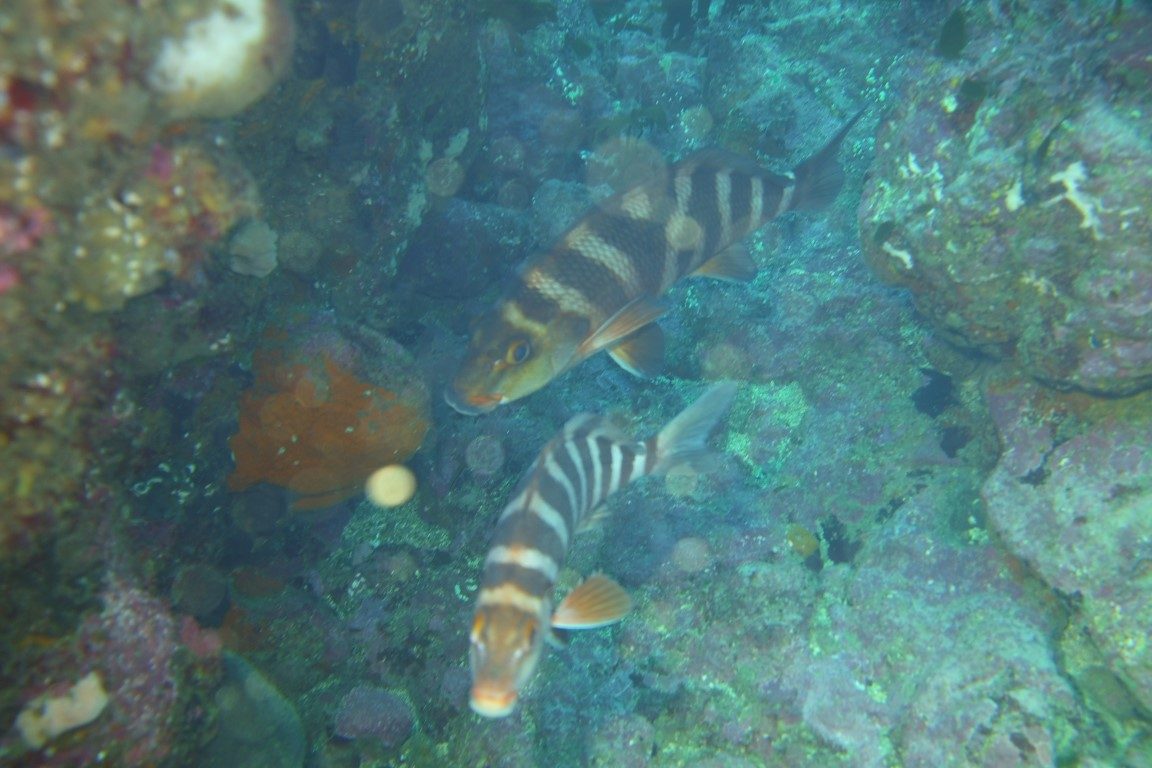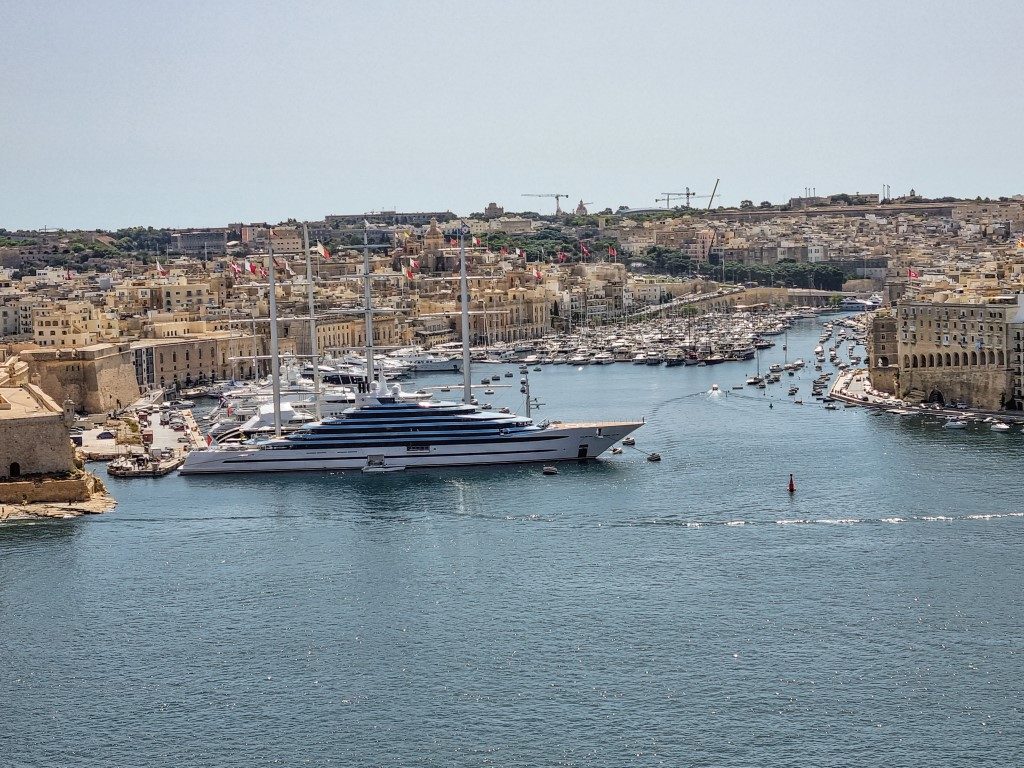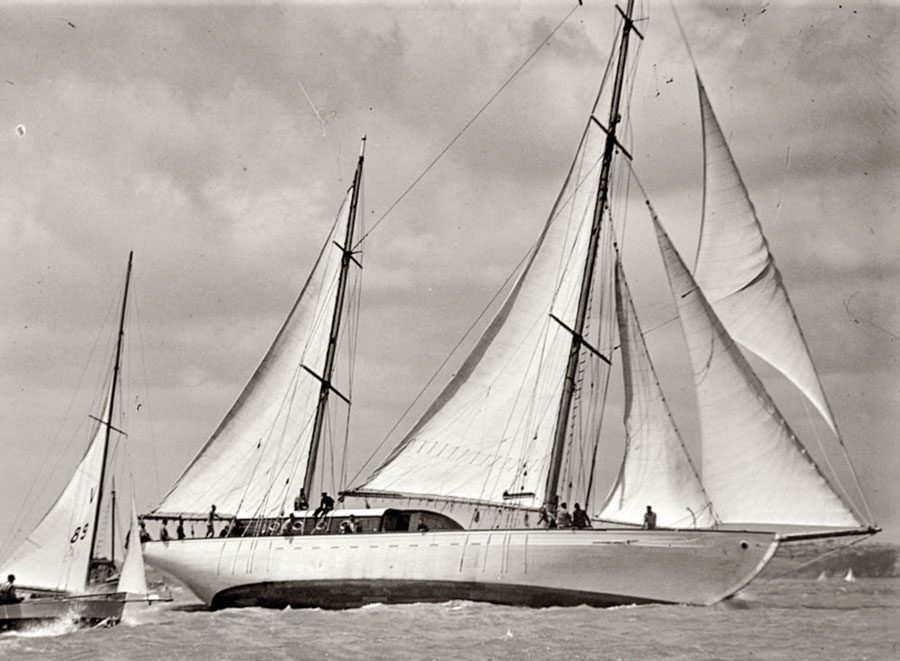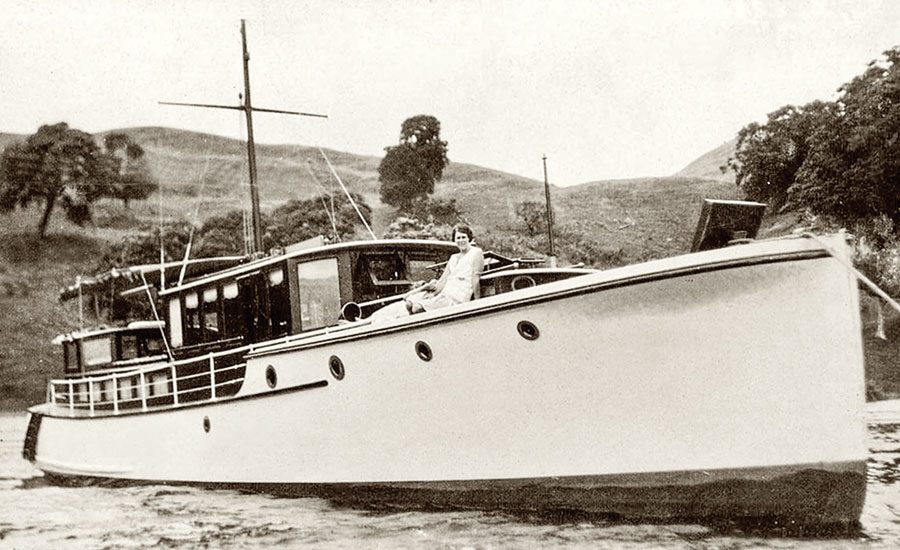

The amazingly intact wreck of the 54m steel steamer, Manasoo, lost in a storm on September 15, 1928, has been located in deep water by an international team of searchers/divers. She’s resting at an unusual angle in Georgian Bay near Owen Sound, Ontario.
Built in Glasgow, Scotland in 1888, the Manasoo spent the first 39 of her 40 years named the Macassa, carrying tourists and cargoes between Toronto and Hamilton on Lake Ontario.

In 1928 the ship was purchased by the relatively-new Owen Sound Transportation Company (today it operates the famous Chi-cheemaun ferry between Tobermory and Manitoulin Island, and the Pelee Island ferries on Lake Erie). Scheduled mainly for the Manitoulin Island to the Soo (Sault Ste. Marie) run, the refurbished vessel was renamed the Manasoo, reflecting these two harbour stops.
She enjoyed a successful first season under her new name and ownership, but then disaster struck. Departing Manitowaning on Manitoulin Island on September 14, 1928, with 17 crew, four passengers, and 116 head of cattle, she’d nearly reached her destination when she encountered heavy seas at 2am.

The vessel started settling at the stern and, realising that something was terribly wrong, the captain quickly headed his ship to the nearest land – the Griffith Island lighthouse. But she sank before reaching shore.
Five survivors (the captain, three sailors, and one passenger) drifted on a liferaft for 60 hours before being rescued by a passing steamer, the Manitoba. Sixteen people and all the cattle perished. The cause of the sinking remained a mystery, but the shifting cattle cargo was thought to be at least partially to blame.
Ken Merryman and Jerry Eliason, both from Minnesota, and Cris Kohl, from Windsor, Ontario, located the Manasoo in just over 60m of water in June 2018. All three have considerable experience in finding and identifying shipwrecks in the Great Lakes.

“The unique thing about the Manasoo wreck,” says Ken, “is that it sits on the lake bottom on the very same dramatic angle at which the ship sank. The stern, where most of the damage occurred, is embedded up to its railing in the soft bottom, while the bow points up towards the surface, rising high above the lake bottom.”
Ken and Jerry had spent several days in 2017 with Michigan colleague Jared Daniel trying to locate this shipwreck, following 1928 reports that the Manasoo sank in about 90m of water three miles off the Griffith Island Lighthouse.
In 2018, Ken and Jerry continued their search in deep water for several days before Cris Kohl, new to the team, tried steering them closer to Griffith Island, assuming that a sinking ship would head to the nearest land.
Only after receiving a report from Alan Givens in Wiarton that a late dive buddy of his claimed to have found the wreck in 45m of water years earlier (and kept it a secret), did the team head closer to the island, less than a mile from it. They found the Manasoo within hours, but in slightly more than 60m of water, casting doubt upon the story of the diver having found the wreck earlier in 45m.

“After we found her I delved deeper into the 1928 accounts of the sinking,” says Cris, “and discovered that the wreck had actually been located just a few weeks after it sank. One newspaper account even gave the exact location and the accurate depth of the shipwreck!”
Cris and his wife (researcher/writer Joan Forsberg) have written 16 books about Great Lakes shipwrecks, and have read several accounts of the Manasoo’s sinking, yet that 1928 discovery of the wreck was not reported in any of them.

The team worked under an archaeological license issued to Ken by the province of Ontario (such a license is mandatory for anyone searching for a shipwreck in Canadian waters of the Great Lakes) to find the wreck of the Manasoo.
After the discovery, Ken received assistance from Greg Hilliard and Terry Irvine, Canadian technical divers, to photograph the wreck – the trio becoming the first visitors to the Manasoo.

Their video and photographs revealed the collapsed smoke stack, the intact pilot house with its unique stairway running down the ship’s centreline, three lifeboats and many other components, including a vintage 1927 Chevrolet Coupe below deck. No human or animal remains were found.
The Chevrolet was owned by the cattle man, Donald Wallace, who was transporting his livestock to southern Ontario where he lived. He was the only passenger who survived the sinking.

The team hopes that further study of the shipwreck will add more information to its story, although the cause of its sinking, with the answer likely buried deep within the stern that lies embedded in the lake bottom, is not likely to be determined any time soon.
Rheumy-eyed sailors would point to the folly of changing a ship’s name…




